Project Year
2010
Region(s)
Latin America and the Caribbean
Country(ies)
Brazil
Project Description
This research focuses on new policies and programs in Brazil such as family grants, popular banking and credit initiatives, correspondent and mobile banking, microcredit, credit cooperatives and credit guarantee programs since price stability and transition from military rule in the 1990s. Interviews with bank correspondent institutions and clients in poor areas of São Paulo city will expand research underway at the CFGV-EAESP Center for Studies in Microfinance and inform articles to be submitted to scholarly journals.
Researcher(s)
Kurt von Mettenheim, Lauro Gonzalez, Eduardo Diniz
About the Researcher(s)
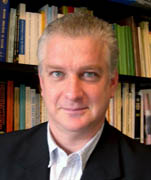 Dr. Kurt von Mettenheim is Professor of Political Sociology, Chair of the Social and Legal Sciences Department,
and Faculty Member in the Doctoral Program in Public Administration and Government
at the Getulio Vargas Foundation São Paulo Business School (Escola de Administração
de Empresas de São Paulo, Fundação Getulio Vargas, FGV-EASP). Formerly University
Lecturer in Brazilian Studies at the University of Oxford and Fellow, St. Cross College,
he has taught at Columbia University, the University of Pittsburgh, the Universidade
de São Paulo, and Universidade de Brasilia. Dr. Mettenheim is author of The Brazilian
Voter: mass politics in democratic transition, 1974 – 1986 (1995), editor of Government
Banking: New Perspectives on Sustainable Development and Social Inclusion from Europe
and South America (2008) with Maria Antonieta Del Tedesco Lins, Presidential institutions
and democratic politics: comparing regional and national contexts (1997) and, with
James Malloy, Deepening democracy in Latin America (1998). Dr. Mettenheim is currently
completing two book manuscripts, Federal Government Banking in Brazil and Financial
Statecraft in Brazil. He was founding editor of the FGV Brazil Forecast - GVprevê,
former Brazil desk officer for Multinational Strategies Inc., and is currently senior
consultant on Brazil at the Gerson Lehrman Group Councils.
Dr. Kurt von Mettenheim is Professor of Political Sociology, Chair of the Social and Legal Sciences Department,
and Faculty Member in the Doctoral Program in Public Administration and Government
at the Getulio Vargas Foundation São Paulo Business School (Escola de Administração
de Empresas de São Paulo, Fundação Getulio Vargas, FGV-EASP). Formerly University
Lecturer in Brazilian Studies at the University of Oxford and Fellow, St. Cross College,
he has taught at Columbia University, the University of Pittsburgh, the Universidade
de São Paulo, and Universidade de Brasilia. Dr. Mettenheim is author of The Brazilian
Voter: mass politics in democratic transition, 1974 – 1986 (1995), editor of Government
Banking: New Perspectives on Sustainable Development and Social Inclusion from Europe
and South America (2008) with Maria Antonieta Del Tedesco Lins, Presidential institutions
and democratic politics: comparing regional and national contexts (1997) and, with
James Malloy, Deepening democracy in Latin America (1998). Dr. Mettenheim is currently
completing two book manuscripts, Federal Government Banking in Brazil and Financial
Statecraft in Brazil. He was founding editor of the FGV Brazil Forecast - GVprevê,
former Brazil desk officer for Multinational Strategies Inc., and is currently senior
consultant on Brazil at the Gerson Lehrman Group Councils.
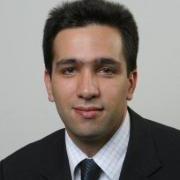 Lauro Gonzalez holds a PhD in Economics from FGV-EESP. He was a Visiting Scholar at Columbia University
in 2004 and a fellow of the Microfinance Management Institute (MFMI) in 2005. Currently,
he is Professor of Finance at FGV-EAESP and head of the Center for Microfinance Studies
at the same institution. He has been lecturing and presenting research in Brazil and
other countries, such as China (University of Beijing, 2008 and 2009) and the United
States (Stanford University, 2008).
Lauro Gonzalez holds a PhD in Economics from FGV-EESP. He was a Visiting Scholar at Columbia University
in 2004 and a fellow of the Microfinance Management Institute (MFMI) in 2005. Currently,
he is Professor of Finance at FGV-EAESP and head of the Center for Microfinance Studies
at the same institution. He has been lecturing and presenting research in Brazil and
other countries, such as China (University of Beijing, 2008 and 2009) and the United
States (Stanford University, 2008).
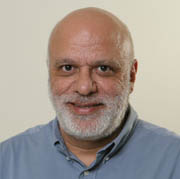
To see some of their previous work, produced by Eduardo Diniz in the Autazes in July 2009:
AUTAZES - Episode 1: Bank Agents in the Amazon: Financial Access and Development : http://www.youtube.com/watch?v=oggYsCiJ_Q0
AUTAZES Episode 2 - Novo Céu: a village without local access to financial services: http://www.youtube.com/watch?v=0wrbtulfrrk
AUTAZES Episode 3 - Education for Inclusive Financial Access: http://www.youtube.com/watch?v=k2muPrYZnEQ
Synopsis of Research Results
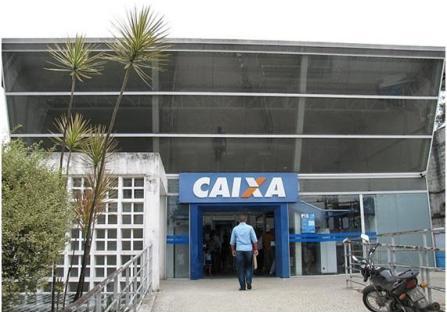 Our research focused on new microfinance products and services at the Brazilian Federal
Government Savings Banks (Caixa Econômica Federal, Caixa) in the far East End of São
Paulo to assess advances and challenges toward social inclusion at the most critical
point, that is to say the large urban poor districts of Brazil. Aggregate data on
banking and demographics clarified the major challenge for social banking in Brazil:
The persistence of urban poverty in large middle-income or emerging country. The Caixa´s
dual mandate as agent for federal government social policy and savings bank specializing
in urban development and down-market banking services provides an alternative model
to private bank and financial market driven microfinance that has come under increasing
scrutiny in recent years.
Our research focused on new microfinance products and services at the Brazilian Federal
Government Savings Banks (Caixa Econômica Federal, Caixa) in the far East End of São
Paulo to assess advances and challenges toward social inclusion at the most critical
point, that is to say the large urban poor districts of Brazil. Aggregate data on
banking and demographics clarified the major challenge for social banking in Brazil:
The persistence of urban poverty in large middle-income or emerging country. The Caixa´s
dual mandate as agent for federal government social policy and savings bank specializing
in urban development and down-market banking services provides an alternative model
to private bank and financial market driven microfinance that has come under increasing
scrutiny in recent years.
Analysis of World Bank Access to Finance and Financial Structure data clarify the
context for social banking and 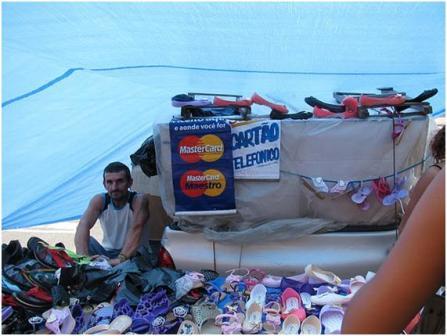 microfinance in a large but underdeveloped banking system in Brazil that has nonetheless
experienced significant progress in terms of reaching previously unbanked citizens
(an estimated 80 percent of Brazilians in 2000). Simplified bank accounts and correspondent
banking have proven the most important mechanisms for inclusion of bankless Brazilians.
However, instead of private bank and market based forces, the federal savings bank,
Caixa Econômica Federal, has led in terms of new policies and services. Demographic
data from the far East End São Paulo region and Guaianases district dramatize the
critical problem for banking and social inclusion in Brazil; that of urban poverty
and worsening social conditions for those worst off during the 1990s – a period of economic reforms
and transition from military rule. Further data from the Caixa at the level of branch
offices in East End São Paulo provides a closer look at the products and services
most important for social inclusion and sound banking. Researchers conducted 114interviews
with Caixa staff and clients at two branch offices and owners, staff and clients of
four bank correspondent shops.
microfinance in a large but underdeveloped banking system in Brazil that has nonetheless
experienced significant progress in terms of reaching previously unbanked citizens
(an estimated 80 percent of Brazilians in 2000). Simplified bank accounts and correspondent
banking have proven the most important mechanisms for inclusion of bankless Brazilians.
However, instead of private bank and market based forces, the federal savings bank,
Caixa Econômica Federal, has led in terms of new policies and services. Demographic
data from the far East End São Paulo region and Guaianases district dramatize the
critical problem for banking and social inclusion in Brazil; that of urban poverty
and worsening social conditions for those worst off during the 1990s – a period of economic reforms
and transition from military rule. Further data from the Caixa at the level of branch
offices in East End São Paulo provides a closer look at the products and services
most important for social inclusion and sound banking. Researchers conducted 114interviews
with Caixa staff and clients at two branch offices and owners, staff and clients of
four bank correspondent shops.
We believe that the dual mandates of social policy and down-market banking at the Caixa may provide alternatives to the predominant models for microfinance based on private banks, cooperatives and financial markets.
Link to Kurt von Mettenheim's blog post: Alternative Banking and Social Inclusion.



